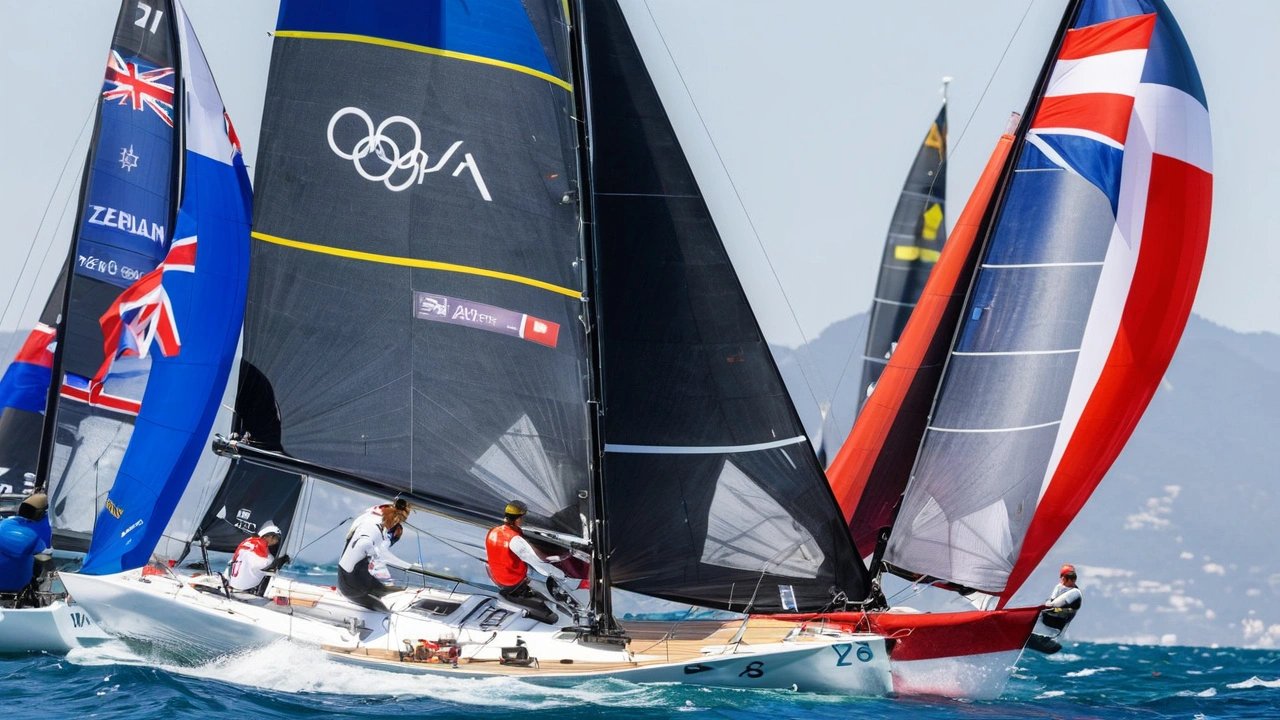Olympics 2024: ILCA Sailboats Prepare for Competitive Waters in Marseille
The 2024 Olympics in Marseille is set to witness the most extensive and diverse fleet in its sailing events, specifically the one-person dinghy categories, ILCA 6 for women and ILCA 7 for men. These compact, white-sailed boats are recognized as the purest representation of sailing, presenting a spectacle of skill and strategy on open waters. The event promises exciting racing, with some of the world's top sailors marked to take part.
Notable competitors include Matt Wearn from Australia, who seeks to defend his gold medal won at the Tokyo Games, and Anne-Marie Rindom from Denmark, a gold medalist from Tokyo and bronze medalist from Rio de Janeiro. Both athletes bring a wealth of experience and a desire to add to their impressive accolades. Their participation raises the stakes and guarantees high levels of competition.
The Tactical Race in Marseille
One of the unique aspects of the ILCA sailing event is that Olympians receive their boats just a week before the competition begins. This tight timeframe means that optimizing every small tactical detail becomes crucial for securing a victory. Sailors must swiftly adapt to their new vessels, fine-tuning techniques that can make the difference between winning and losing.
The race will be especially challenging due to Marseille's notoriously sweltering temperatures and low wind conditions. Sailors will need to balance endurance with strategic maneuvers, harnessing every puff of wind available. This environment tests not only physical prowess but also mental fortitude, pushing athletes to their limits.
Diversity and Development in Olympic Sailing
The event in Marseille isn't just a showcase of skill; it's also a celebration of the global nature of sailing. A multitude of nations is represented in the fleet, including countries like El Salvador, Fiji, and Mozambique, participants of World Sailing’s development program. This diversity underscores the sport's growing reach and its ability to unite people across different regions.
Sailor Micky Beckett from Britain emphasizes the importance of mental focus in this demanding sport. The versatility of the ILCA boats, capable of performing in a wide range of weather conditions, is also highlighted. These boats are known for their accessibility; they are relatively inexpensive and easy to transport, making them an excellent choice for sailors from various countries.
Inspiring Future Generations
Nethra Kumanan of India, who has qualified for the Games, is another inspiring figure in this event. Her participation highlights the growing interest in sailing within her country and the potential for the sport to expand into new territories. The games aim to inspire more children to take up sailing by showcasing how accessible and straightforward the sport can be.
The significance of the ILCA categories cannot be overstated—they represent the essence of sailing. Simple in design but demanding in execution, these boats epitomize sailing's blend of art and science. Their prominence in the Olympics serves as a reminder of the sport's timeless appeal and its capacity to draw athletes from all walks of life.
The Road Ahead
As the athletes prepare to hit the waves in Marseille, the anticipation is palpable. Each sailor will bring their unique story, skill set, and dreams to the event, making every race a captivating narrative of human endeavor and resilience. The 2024 Olympics promises not only intense competition but also a testament to the unifying power of sports.


ria ariyani
August 3, 2024 AT 06:27Emily Nguyen
August 5, 2024 AT 00:49Ruben Figueroa
August 6, 2024 AT 20:32Gabriel Clark
August 7, 2024 AT 18:45Elizabeth Price
August 8, 2024 AT 18:32Steve Cox
August 10, 2024 AT 05:28